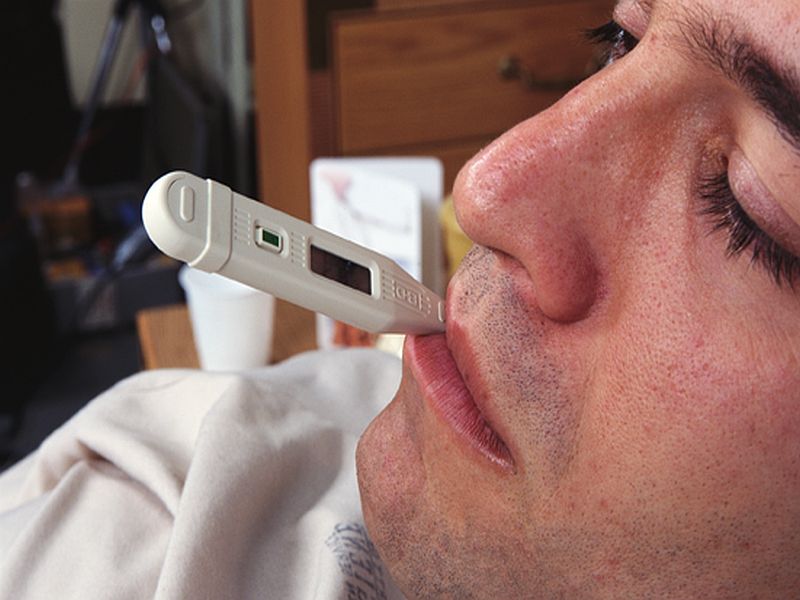Wearable Sensors Might Spot Sickness Earlier than Signs Begin

Newest Prevention & Wellness Information
THURSDAY, Jan. 12, 2017 (HealthDay Information) -- Wearable sensors to trace issues comparable to coronary heart price, exercise and pores and skin temperature could assist you to preserve monitor of your well being and warn you of impending sickness, a brand new research suggests.
Researchers not too long ago compiled nearly 2 billion measurements from 60 folks.
The thought is to find out baseline medical details about the members. "We need to research folks at a person stage," research senior writer Michael Snyder, chair of genetics at Stanford College College of Medication in California, stated in a college information launch.
The members within the research did not have to put on specifically designed sensors. As a substitute, they wore as few as one -- or as many as seven -- exercise screens which can be commercially accessible.
The screens grabbed greater than 250,000 measurements a day, together with: weight; coronary heart price; oxygen within the blood; pores and skin temperature; exercise, comparable to sleep and steps (strolling, biking and operating); energy expended; acceleration; and publicity to gamma rays and X-rays.
"I used to be very impressed with all the info that was collected," stated Dr. Eric Topol, a professor of genomics on the Scripps Analysis Institute in La Jolla, Calif. Topol wasn't concerned within the research.
"There's so much right here -- numerous sensors and numerous totally different information on every particular person," he famous.
The researchers stated the research exhibits that it is attainable to find out a baseline of assorted well being traits. If there is a baseline, there's additionally perception into when persons are deviating from the norm, they defined.
Researchers can determine when that occurs and decide if deviations are linked with sure situations, environments or different elements. Then they'll use that info for therapy and prognosis, the research authors stated.
The gadgets offered useful perception to Snyder himself. He was carrying seven biosensors throughout a flight to Norway for trip when he observed that his coronary heart price and blood-oxygen ranges have been irregular. They did not return to regular whereas in-flight, and he went on to develop a fever.
Snyder fearful that he'd been bitten by a tick throughout an earlier go to to Massachusetts and had developed Lyme illness. He visited a physician in Norway, and it turned out his suspicion was appropriate. The physician gave him acceptable remedy.
"Wearables helped make the preliminary prognosis," Snyder stated within the information launch.
Topol added, "The truth that you possibly can decide up infections by monitoring earlier than they occur may be very provocative."
One other chance: the gadgets might decide up indicators of insulin resistance, an early warning indicator of sort 2 diabetes. The research authors created an algorithm that used numerous bits of information, comparable to coronary heart price variability, from sensors to foretell insulin resistance in customers.
And in one other bit of probably helpful info, the researchers found that blood-oxygen ranges in airplane passengers dipped, and passengers felt drained. However each the tiredness and the blood-oxygen stage disparity tended to dissipate over lengthy flights.
Topol stated "the desaturation of oxygen in flight was not one thing I anticipated. Everytime you stroll up and down the aisle of a aircraft, everyone seems to be sleeping, and I assume there could also be one more reason for that in addition to that they partied too onerous the evening earlier than. That was actually fascinating, and I assumed it was nice that the authors did that."
What's subsequent? In accordance with Snyder, human well being may very well be monitored by sensors each minute of the day. "We've got extra sensors on our automobiles than we have now on human beings," he stated, however he expects the scenario will reverse.
The research was revealed on-line Dec. 12 within the journal PLOS Biology.
-- Randy Dotinga

Copyright © 2016 HealthDay. All rights reserved.
SOURCE: Stanford College College of Medication, information launch, Dec. 12, 2016
No comments:
Post a Comment